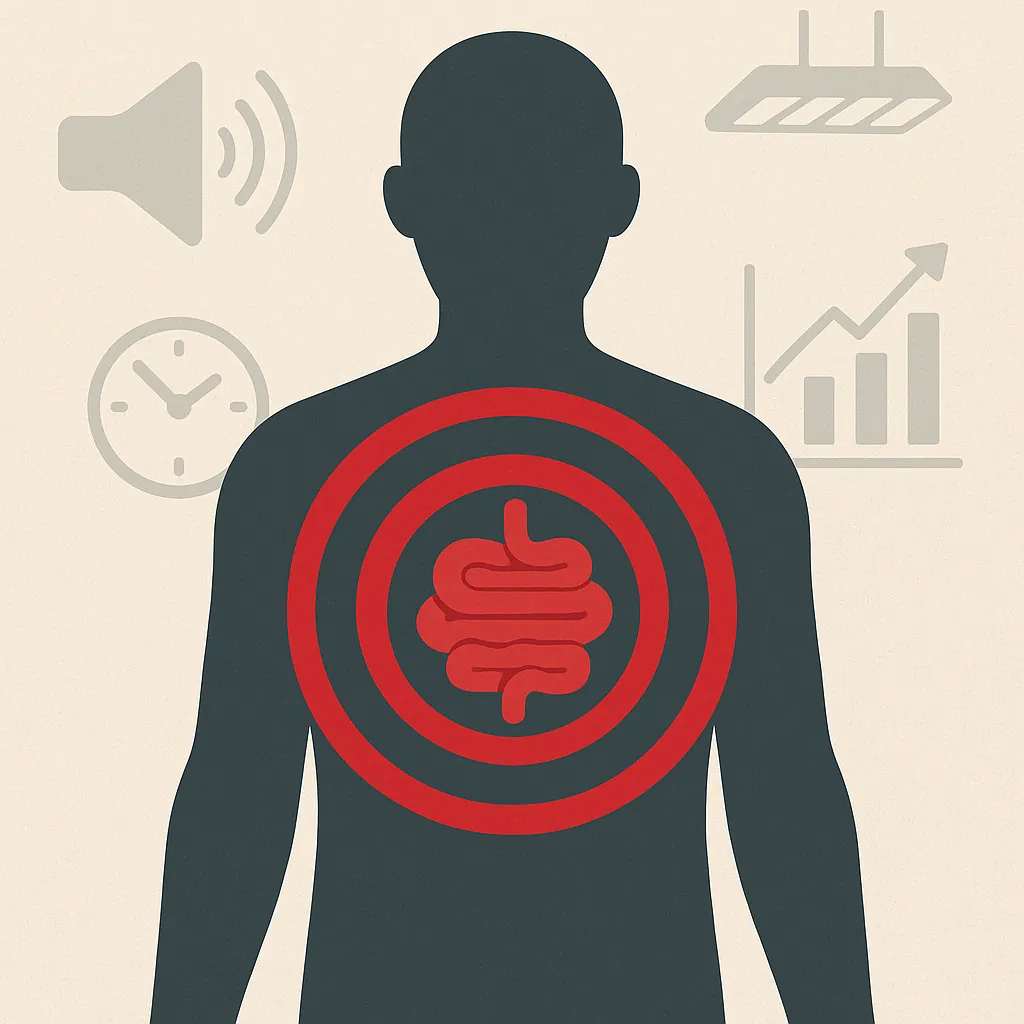When the Autistic Gut Gets Blamed for the World: What This Propranolol Study Doesn’t Ask
 A new study led by Bradley J. Ferguson, an assistant research professor in the Department of Neurology at the University of Missouri, claims that propranolol — a beta blocker typically used to treat high blood pressure — may help reduce gastrointestinal symptoms in autistic individuals. The suggestion? That by dampening stress through the autonomic nervous system, the drug might also alleviate what are described as “social communication deficits.”
A new study led by Bradley J. Ferguson, an assistant research professor in the Department of Neurology at the University of Missouri, claims that propranolol — a beta blocker typically used to treat high blood pressure — may help reduce gastrointestinal symptoms in autistic individuals. The suggestion? That by dampening stress through the autonomic nervous system, the drug might also alleviate what are described as “social communication deficits.”
“Many individuals with autism spectrum disorder (ASD) experience gastrointestinal (GI) symptoms, which can impact social interactions, exacerbate social communication deficits, and decrease the quality of life.”
Let’s pause right there.
That framing doesn’t just shape the study — it infects it. And it reveals the deep, unexamined logic that has guided autism science for decades.
This study, conducted by researchers at the Thompson Center for Autism and Neurodevelopmental Disorders and MU Health Care, is shaped by the same assumptions that have dominated autism research for decades:
- That the autistic body is the problem
- That distress originates inside us, not around us
- That so-called “social impairments” might be mitigated by treating our stomachs
In the world of this study, stress appears to worsen autistic behavior — but the source of that stress is left unquestioned. There’s no mention of masking. No acknowledgment of sensory overload, communication barriers, educational trauma, medical dismissal, or the exhausting demand to perform neurotypicality on cue. The working assumption is clear: distress is internal. And correctable with medication.
Let’s be precise:
This isn’t just a framing oversight. It’s a foundational bias — one that misreads cause and effect and pathologizes reasonable responses to unreasonable environments.
The study implies that gastrointestinal symptoms may drive autistic social difficulties. But if you’ve lived as an autistic person — especially in systems that punish nonconformity and misunderstand difference — you already know what this gets wrong.
Our distress is often a reaction, not a defect.
We are not broken by biology. We are dysregulated by misfit.
Instead of asking what long-term exposure to social invalidation does to the gut, the study reverses the lens: the body malfunctions, the drug restores order, and perhaps — implicitly — we become easier to manage.
That’s not a neutral hypothesis.
That’s ideology with a data set.
And every time this kind of research gets published, it teaches the world — again — that autistic suffering is just a symptom to be managed, not a truth to be heard.
This isn’t a collapse of logic — it’s a collapse of imagination masquerading as treatment.
And here’s the part that really stings: we can’t even access the full study. It’s published behind a paywall in the Journal of the American Academy of Child & Adolescent Psychiatry (link), locked away from many of the very people whose lives it claims to improve.
But in this case, the abstract was enough.
In just four sentences, the authors made clear what kind of story they’re telling — and who they assume is listening.
It’s not us.
This is what happens when physiology is medicalized before context is understood — when research focuses on the nervous system but not the nervous state of living in a world not built for you. This is what happens when autism science still asks how to fix us, instead of asking what makes life so hard to bear.
Let’s be clear:
Our guts are reacting — violently, chronically, and with reason — to something real.
And that something isn’t defective biology. It’s the ongoing violence of a world that insists we’re the problem. And continues to fund studies that reinforce that assumption.
We are not opposed to medicine.
We are opposed to the stories that justify its use without first understanding what that medicine is being used to silence.
If you’re going to study our pain, start by believing it has a cause.
And if you’re going to name our deficits, be prepared to confront your own assumptions.
Because our bodies are not your malfunction.
And our distress is not yours to quiet — until you’ve asked what it’s trying to say.
#autism #gut-brain-axis #medical-ethics #narrative #paywall-science #propranolol #research